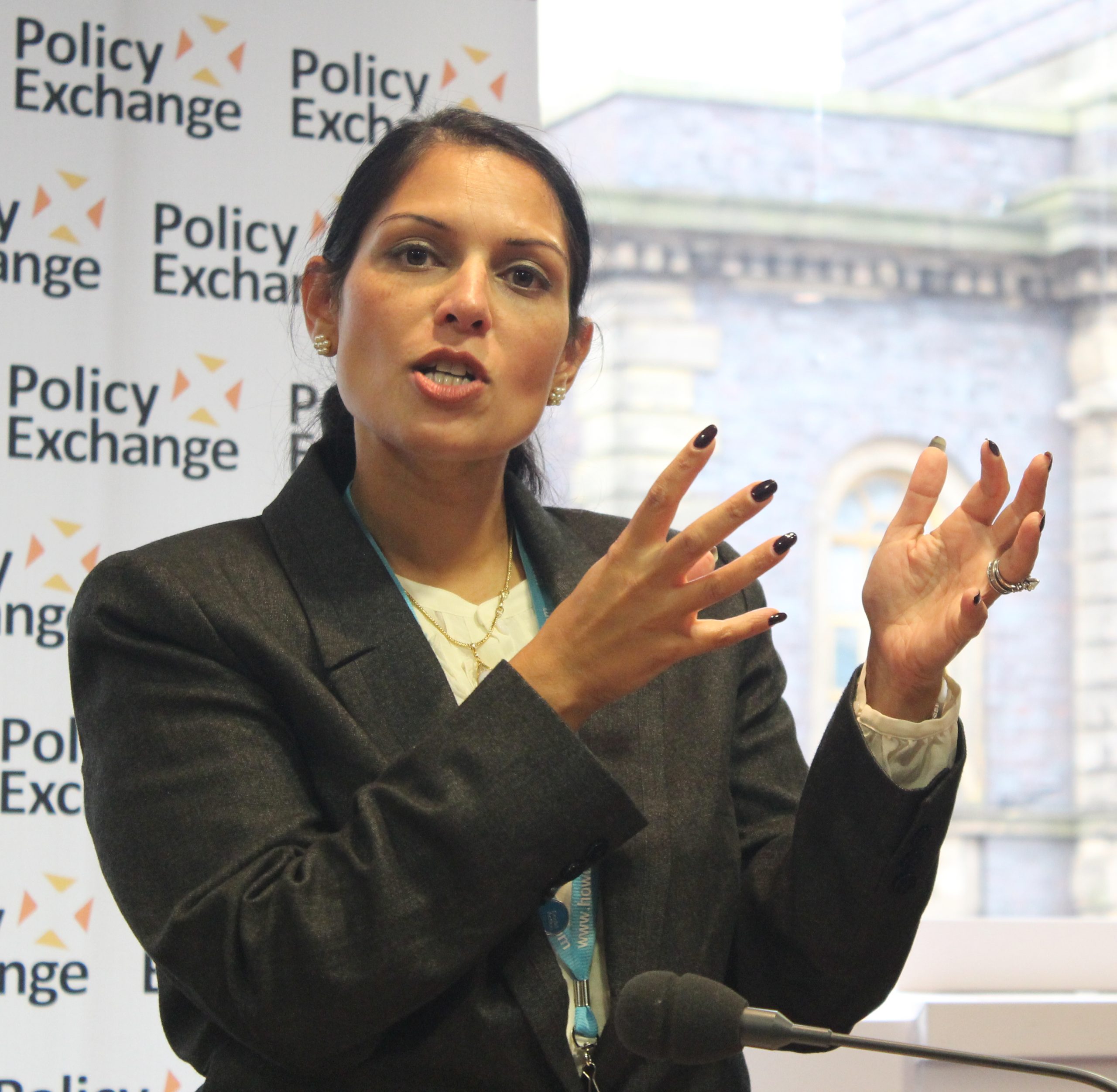The government’s new immigration policy has been condemned as “toxic” and “xenophobic” with business set to be hit hard by plans that “spell absolute disaster” for Britain’s care system.
Home secretary Priti Patel defended the new policy that is designed to cut numbers of low-skilled migrants coming to post-Brexit Britain from the start of next year, with a new points based system limiting migration to skilled-workers who speak English, have a job offer and command a salary of at least £25,600 a year.
‘Employers will need to adjust’
The policy paper was published last night (Tuesday) and states: “We need to shift the focus of our economy away from a reliance on cheap labour from Europe and instead concentrate on investment in technology and automation.
“Employers will need to adjust.”
The paper says the new plans will give the UK “full control over who comes to this country” for the “first time in decades”.
Patel told LBC’s Nick Ferrari, “the fact of the matter is that the British public spoke”, and they wanted to see “a British Government with its own immigration policy and system, a Government that is in control… and end our reliance effectively on low skilled workers who are more often than not are also low paid”.
‘Xenophobic, toxic, dog whistle politics’
The Liberal Democrats slammed the policy as based on “xenophobia” rather than the social and economic needs of our country”, while Labour’s shadow home secretary Diane Abbott told BBC TV’s Breakfast the requirement to speak English is “dog whistle politics”.
Abbott added: “I think there’s going to have to be a lot of exemptions, a lot of exceptions. I think this policy is going to turn into a muddle and yet it sends a very clear message that immigration is a bad thing, and I think that’s a toxic message to send.”
Plans spell ‘absolute disaster for the care sector’
The plans “spell absolute disaster for the care sector”, said Unison assistant general secretary Christina McAnea while the Royal College of Nursing’s chief executive and general secretary Dame Donna Kinnair said the proposals will “not meet the health and care needs of the population.”
The UK Homecare Association said it was “dismayed” by the proposals, adding: “Cutting off the supply of prospective careworkers under a new migration system will pave the way for more people waiting unnecessarily in hospital or going without care.
“Telling employers to adjust, in a grossly underfunded care system, is simply irresponsible.”
Industry’s ‘serious concerns’
The Confederation of British Industry (CBI) welcomed the removal of the cap on skilled workers but warned the construction, hospitality, care and the food and drink sectors, which already have low unemployment, could be most impacted by the changes.
Director general of the CBI , Carolyn Fairbairn said in “some sectors, firms would be left wondering how they would recruit the people needed to run businesses.”
Tom Hadley, the Recruitment and Employment Confederation’s director of policy, said: “Jobs the government considers ‘low-skilled’ are vital to wellbeing and business growth. The announcement threatens to shut out the people we need to provide services the public rely on.”
UKHopsitality tweeted: “We support the ambition to upskill the domestic population & provide opportunities for people in every part of the UK. These proposals fail to deliver on the Govt’s own objective to provide an immigration system that works for the UK economy & its people.”
Business needs to invest in British workers
A government source quoted by the Telegraph, said: “Businesses can no longer rely on cheap migrant labour to do low-skill work as has been the case for the last 20 to 30 years,” and added: “They need to invest in British workers. “
Former Brexit secretary David Davis MP told BBC Radio 4’s Today programme: “What’s happened in the last 20 years is that some industries have become very dependent on infinite supply of unskilled labour.
“And what that’s meant is they’ve not invested as much as they should have done, they’ve not trained as much as they should have done, the income of their least paid workers has effectively been frozen.
“All those things are going to have to readjust, I’m afraid.
“I don’t think that is a bad thing.”
Davis added: “This is not an unreasonable approach, it’s a very reasonable approach and it’s exactly the approach the Government has been predicting for three years.”
Patel will introduce legislation in the forthcoming weeks for the new immigration system which will into effect on January 1, 2021, giving employers just ten months to ensure their staff have the right to work in the UK.




